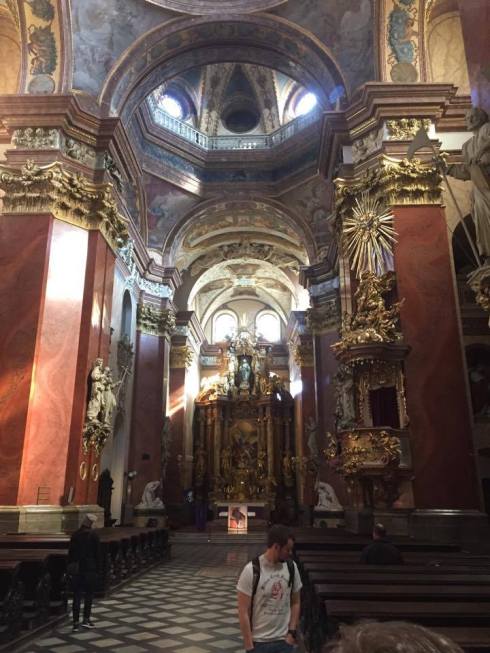“Pivo?” Pivo.
Pivo? “PIVO!”
That was the only word the guys and I on this trip would say for a while. And we understood each other perfectly.
We have been in Olomouc, Czech Republic for just under a full week now and we have been bombarded by locals spitting out Czech like rapid-fire. Constantly we are surrounded by a flurry of new words and phrases and none of us know what we are seeing, saying, or ordering, for that matter. Except pivo. We learned immediately pivo is Czech for “beer” and that it is the cheapest beverage by far, so pivos took up a lot of our bonding time. A glass of water (voda) will run you about double the price of a pivo.

It did not take us long to realize that we were a nuisance to the places we visited if we could not communicate with the locals here; we quickly started asking anyone with the ability to translate for basic phrases and words. We asked about please (prosím), thank you (dekuju), yes and no (ano, ne). Our vocabulary was limited but we could at least have basic manners and communicate the rest of the world with some body language and signing, pointing, and gesturing.
Earlier this week we had our first class that would introduce us to the language. We came in with excitement and were ready to finally learn how to communicate with the people we will be adapting to over the next months. Immediately, our professor began rattling of phrases in Czech and we were left in a daze. This would be difficult, we learned. However, she had mercy on us. She began teaching us the alphabet and all the different sounds the new letters make (there’s about 15 extra letters). The next thing I know I was riding the shuttle back to our dorms trying to read all of the different signs, directions, and tags I saw. Once you understand what sound each letter makes, you are able to read Czech easily, even if you do not understand the word itself.

None of us know how to say “nice” or “beautiful” yet, but we went on a church-hopping tour and it was “dobré (good).” Apparently the Czech language is one of the hardest to learn because you see words like “prst (finger)” and “čtvrtek (Thursday)”and your immediate thought is “why do they hate vowels so much?” But the Czech people are very proud of their language and I am nervous, anxious, and excited to begin to learn it more fully.
“Voda?”
Ne. Prosím, pivo.
-houston arens, pivo extraordinaire
